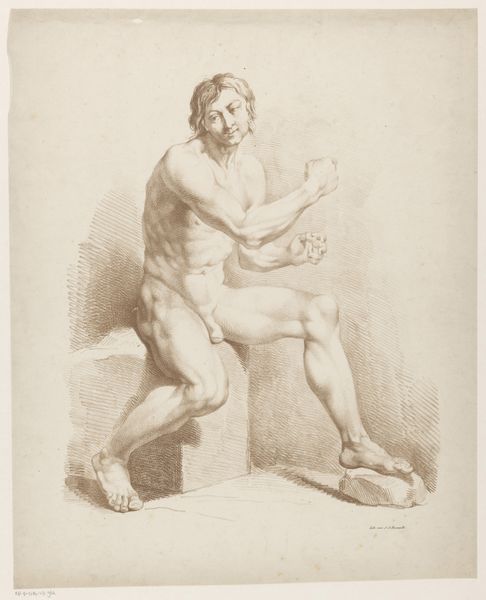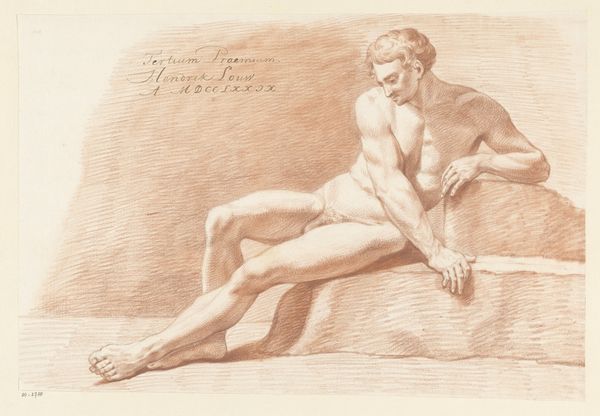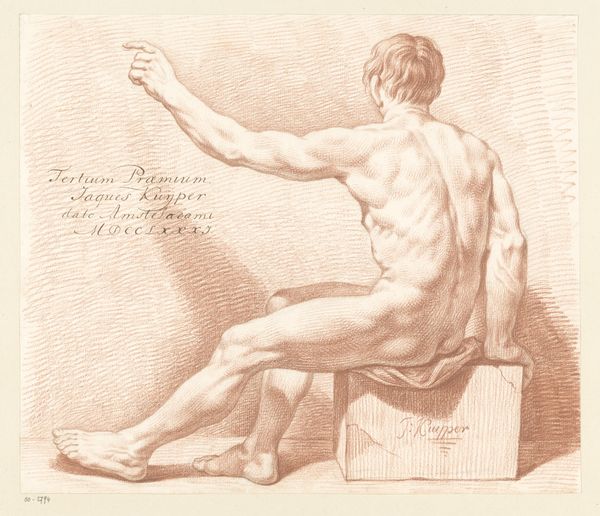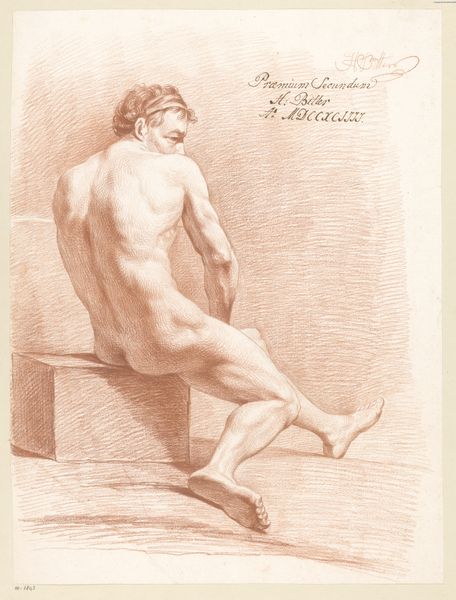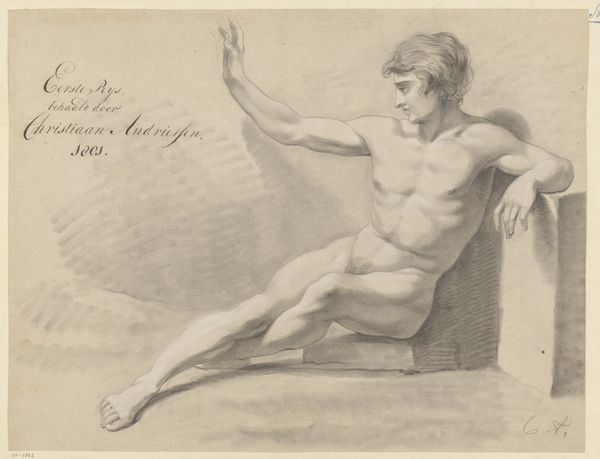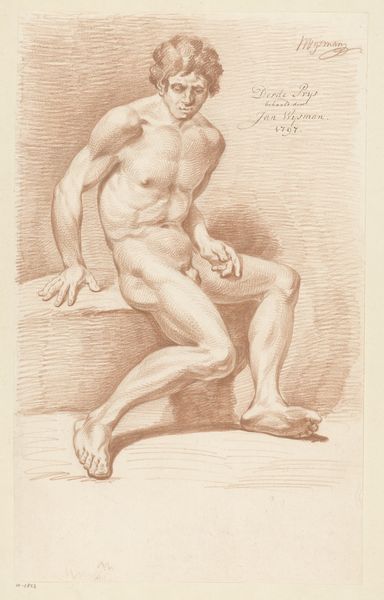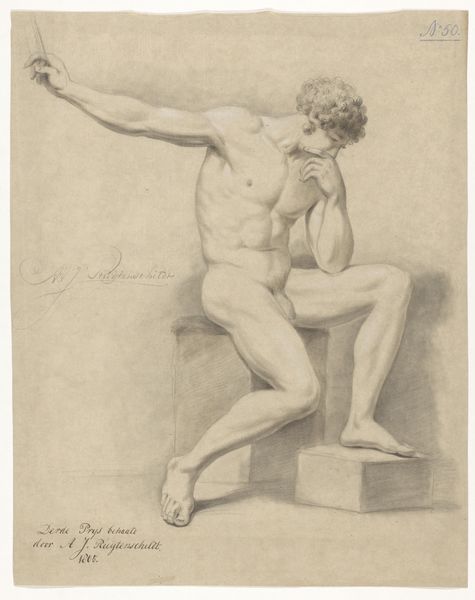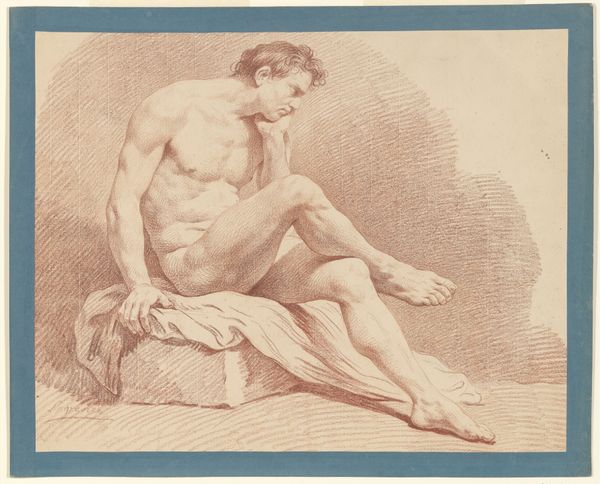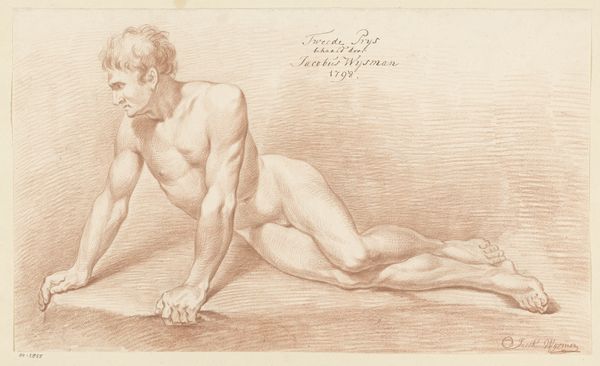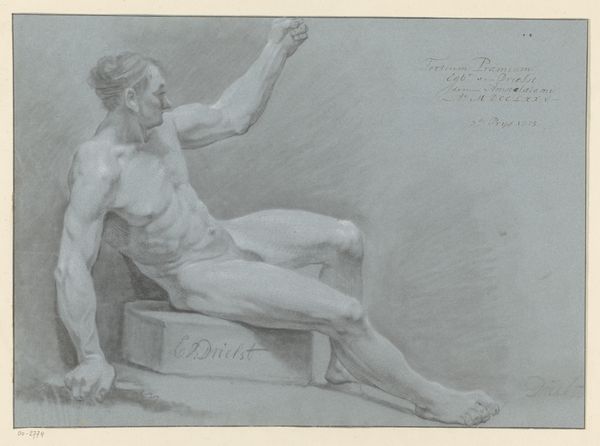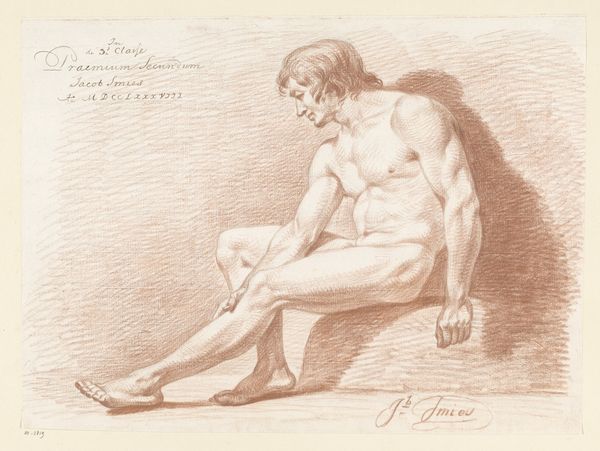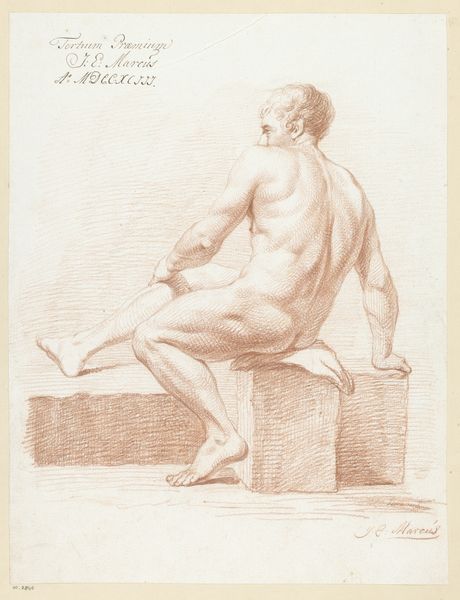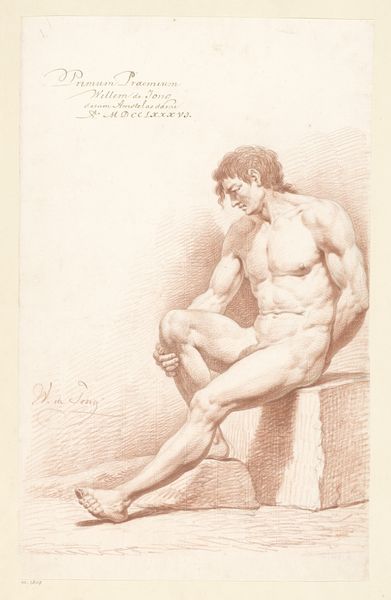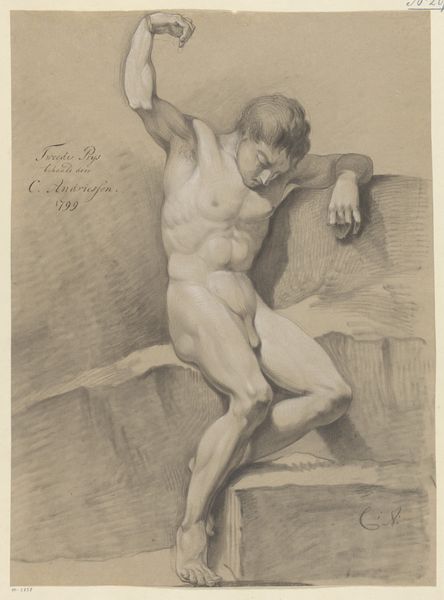
drawing, pencil
#
drawing
#
figuration
#
pencil drawing
#
pencil
#
academic-art
#
nude
#
realism
Dimensions: height 350 mm, width 413 mm
Copyright: Rijks Museum: Open Domain
Curator: This drawing, possibly from 1814, is titled "Zittend mannelijk naakt, van voren gezien," which translates to "Seated Male Nude, Seen from the Front." It's attributed to Jan de Ruyter. Editor: It possesses a wonderfully relaxed feel, despite its anatomical study. The texture feels so immediate through the subtle hatch marks. Curator: The use of pencil, almost sanguine in tone, does lend itself to that impression. Given that it earned second prize in 1814, the artist was undoubtedly aiming for a certain academic ideal in rendering form. Note the precise articulation of musculature. Editor: But there is a very gentle spirit as well. His somewhat vulnerable position, almost lounging with his arm so loose over that block of stone or wood makes me think this symbolises intellectual strength in contraposition with sensitivity. His somewhat blank face also contributes to a sensation of uncertainty and lack of a clearly defined position. Curator: I appreciate your reading, and yes the gesture feels somewhat unheroic or unconventional when we compare to classic treatments of the male nude. And while it echoes some realism in portraying anatomical detail, De Ruyter doesn't capture much textural reality, but simplifies it towards clean lines, that define it. Editor: Simplifies but highlights what truly defines a human. This pencil is so refined, in these clean outlines... you have here almost a soul, the quintessence of life which at that same time may express a sensation of un-completeness. Curator: The very fact that he is holding something undefined may symbolize his un-completeness? Interesting observation; for me, the object in his hand feels more like a tool, not quite defined—or maybe this is an effort, by De Ruyter, to symbolize the artist’s role itself, this capacity to generate form out of almost nothing, an idea? Editor: That's beautifully put. Seeing the work this way, I see a drawing not just of a man but also the artist finding its own way of expression... This is almost philosophical for a competition drawing! Curator: Perhaps academic training wasn't necessarily at odds with creative contemplation!
Comments
No comments
Be the first to comment and join the conversation on the ultimate creative platform.
